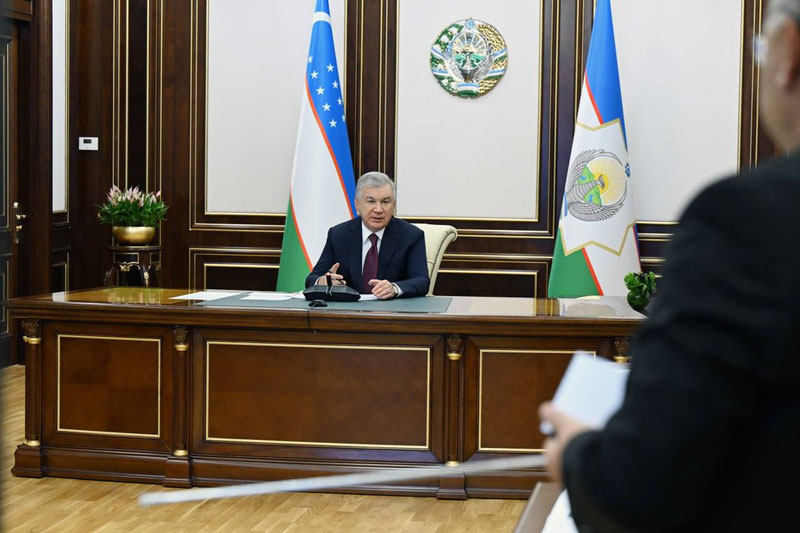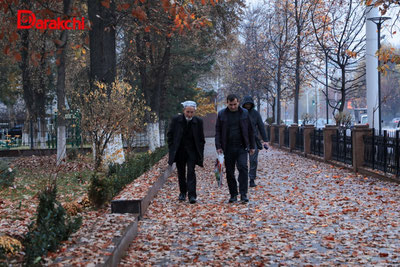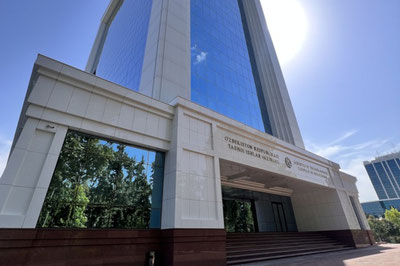On November 17, President Shavkat Mirziyoyev familiarized himself with a presentation of proposals for increasing efficiency in cotton growing based on advanced experience and technologies, and for the financial support of agriculture.
Agriculture holds an important place in our country's economy. The sector's share in the economy is 20 percent; it produces 467 trillion soums worth of products annually and employs 3.5 million people. Furthermore, fruits and vegetables, as well as new and processed agricultural products, provide one-third of the total export volume.
The presentation thoroughly examined issues of increasing yields in cotton farming.
For this purpose, measures were identified, including targeted work with low-yield farmers, the correct implementation of advanced agrotechnologies and fertilization practices, and a fundamental reform of the agronomist training system.
In particular, it was proposed to pair advanced farmers, who have increased yields to over 60 centners, with farmers yielding less than 30 centners, by establishing mentor-student traditions in cotton farming.
Advanced farmers will undergo retraining at the Agriculture Skills Development Institute and receive certificates. If the yield of the low-yield farmers they are paired with increases to at least 50 centners, the advanced farmers will receive a bonus of 5 million soums.
To improve the agronomist training system, a two-year "dual education" mechanism will be introduced for graduates of the Agrarian University and other higher education institutions that train agronomists in the field. Students who undergo internships at leading clusters and farms will receive scholarships, and the specialists who train them will receive incentive payments.
The presentation also separately addressed the work on creating local cotton varieties.
It was noted that our country has two unique scientific institutes for cotton growing – the Genomics Center and the Cotton Growing Institute – but their potential is not being fully utilized.
To further develop cotton seed production based on varietal selection, it was instructed to provide these institutes with phytotrons and reproduction greenhouses. As a result, the time required to create new local varieties will be reduced by 2.5 times, the work of scientists will accelerate, and the need for imported seeds will be eliminated.
Plans to scale up the experience of planting cotton under film were considered.
Our President emphasized the importance of expanding the use of agrodrones in the sector and training specialists in this area.
The issue of introducing artificial intelligence and digital technologies in agriculture was also on the agenda. Information was provided on the work currently being done in collaboration between the Ministry of Agriculture and foreign companies to train personnel and create scientific infrastructure in this area.
Issues of financial support were also discussed.
It was proposed to introduce a voluntary crop insurance system for cotton, grains, fruits, and oilseed crops starting in 2026, with 50 percent of the insurance premium covered by the budget.
To simplify the subsidy system, an initiative was put forward to establish an Agricultural Payment Agency, which will distribute subsidies through a single platform, replacing the 75 types of subsidies currently provided by various agencies. This will significantly reduce unnecessary hassle and bureaucracy for farmers.
Our President approved the proposals and gave relevant instructions to the responsible persons.






